Training
CDFS provides internationally recognised and industry-embedded training aimed at forensic investigators, digital security practitioners, and those with forensic experience wanting to develop their skills further. We bridge the gap between what you know and what you need to know to be effective in your digital investigations.
Available Courses
Showing 37–48 of 51 results
-
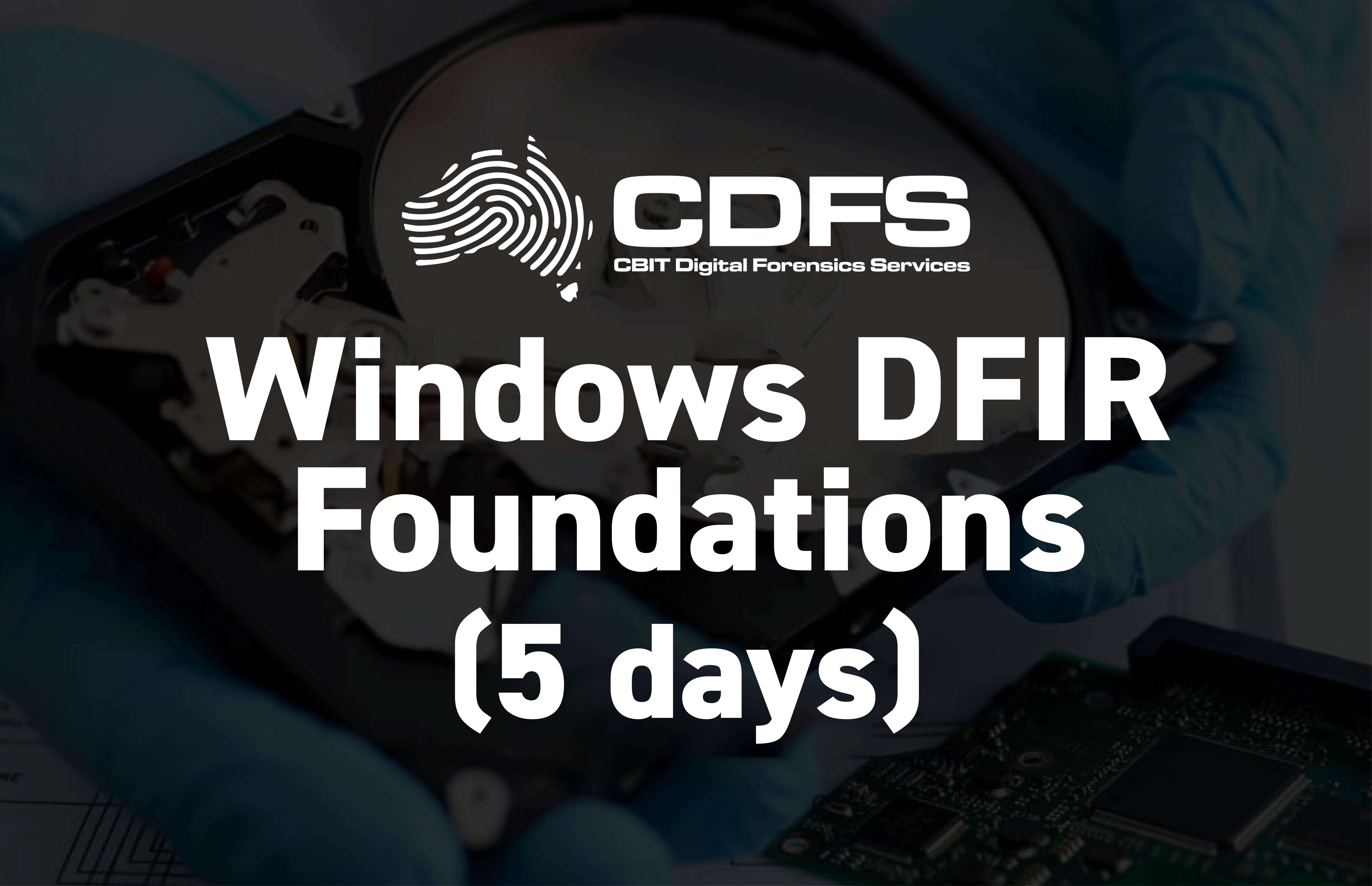
Windows DFIR Foundations
In this course, participants will learn how to decode information which is not decoded by forensic tools. They will also utilize third party software and Python scripts to analyze, verify and validate findings.
-
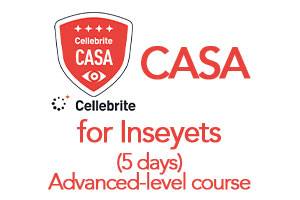
Cellebrite Advanced Smartphone Analysis (CASA) for Inseyets
In this course, participants will learn how to decode information which is not decoded by forensic tools. They will also utilize third party software and Python scripts to analyze, verify and validate findings.
-
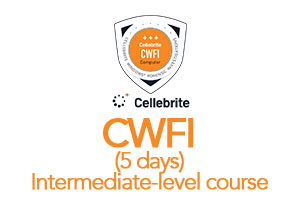
Cellebrite Windows Forensic Investigations (CWFI)
Cellebrite Windows Forensic Investigations (CWFI) is a five (5) day intermediate level training course designed to teach and improve practitioners Windows forensic analysis skills. Students will receive detailed instruction about Windows-based file systems, operating systems, user data, and application artifacts, including Windows 10 artifacts. Emphasis is placed on teaching file system functions and where critical information is stored for insightful, expedited investigations.
-
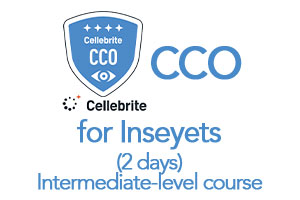
Cellebrite Certified Operator (CCO) for Inseyets
2 Day, Instructor Led Training (ILT)
The Cellebrite Certified Mobile Examiners Course is designed for the intermediate and advanced investigator / digital forensic examiner. -
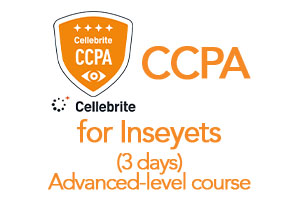
Cellebrite Certified Physical Analyst (CCPA) for Inseyets
3 Day, Instructor Led Training (ILT)
The Cellebrite Certified Mobile Examiners Course is designed for the intermediate and advanced investigator / digital forensic examiner. -
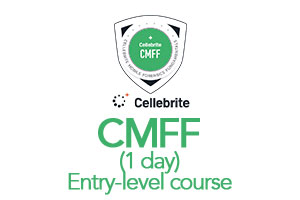
Cellebrite Mobile Forensics Fundamentals [CMFF]
Online On Demand (OD)
The 2-day, Cellebrite Mobile Forensics Fundamentals (CMFF) course no longer represents an introduction to forensics, often referred to as the basics. -
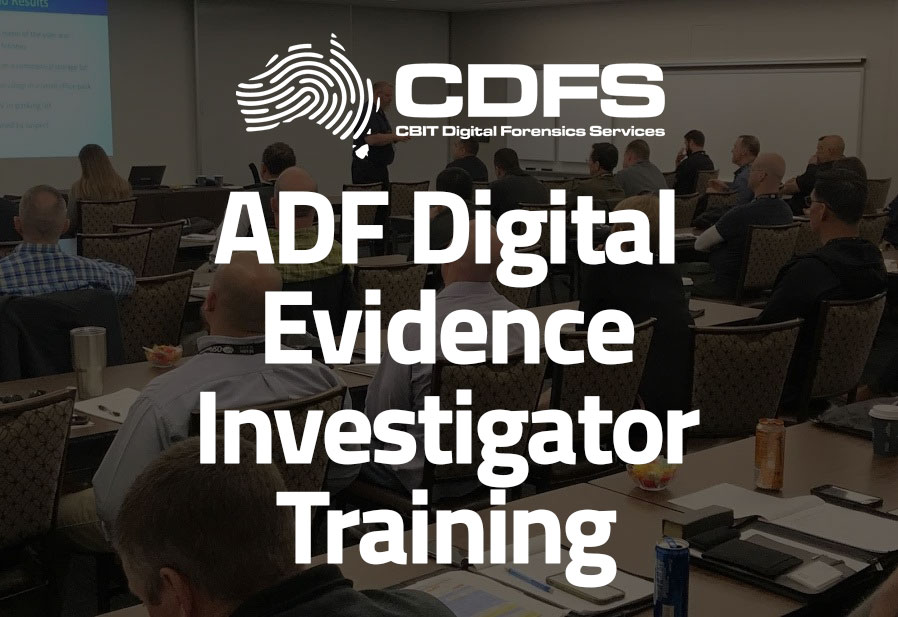
Digital Evidence Investigator Training
We offer a 2-Day hands-on, instructor-led Digital Evidence Investigator training. Students will learn how to configure DEI, operate the digital forensic software, analyze and interpret the evidence and forensic results.
-
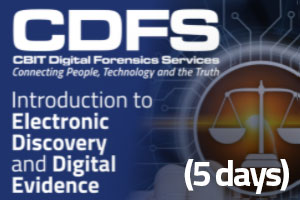
eDiscovery & Digital Evidence
Course material and exercises plot the path that evidence follows from the familiar information items called documents”that lawyers use in court back to the featureless stream of binary electrical impulses common to all information stored electronically.
-
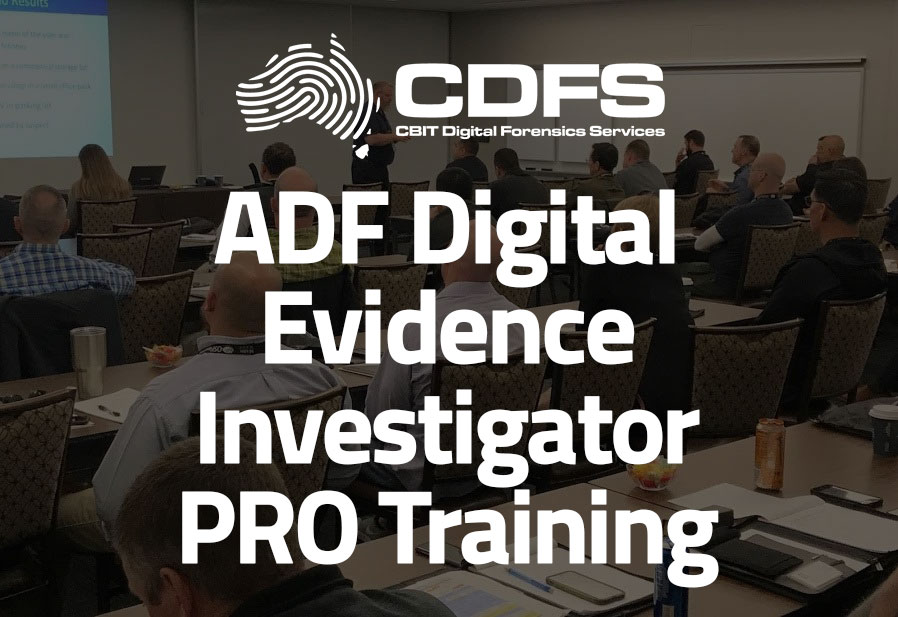
Digital Evidence Investigator PRO Training
ADF Solutions digital forensic experts designed the Digital Evidence Investigator PRO (DEI PRO) Certified User training to equip both technical and non-technical investigators with the knowledge and skills they need to use DEI PRO to immediately extract conclusive intelligence and evidence from mobile devices, computers and digital media. The class is self paced. Learners typically take approximately 18 hours to successfully complete the exercises and the final certification exam.
-
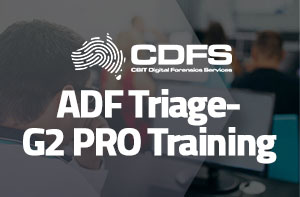
Triage-G2 PRO Training
ADF Solutions digital forensic experts designed the Triage-G2 PRO Certified User training to equip both technical and non-technical forward operators with the knowledge and skills they need to use TG2 PRO to immediately extract conclusive intelligence and evidence from cell phones, mobile devices, computers and digital media. The class is self paced. Learners typically take approximately 20 hours to successfully complete the DOMEX training exercises and the final certification exam.
-
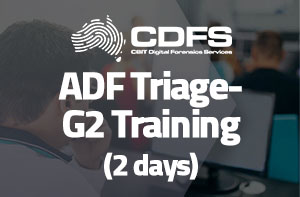
Triage-G2 Training
We offer a 2-Day hands-on, instructor-led training for Triage-G2® (TG2). Trainees in this forward operator forensic triage training will learn how to configure Triage-G2®, operate the software and interpret results.
Deployment: The triage tool is ideal for special operations and forward operators as it is deployed for reconnaissance on a small, portable USB key.
-
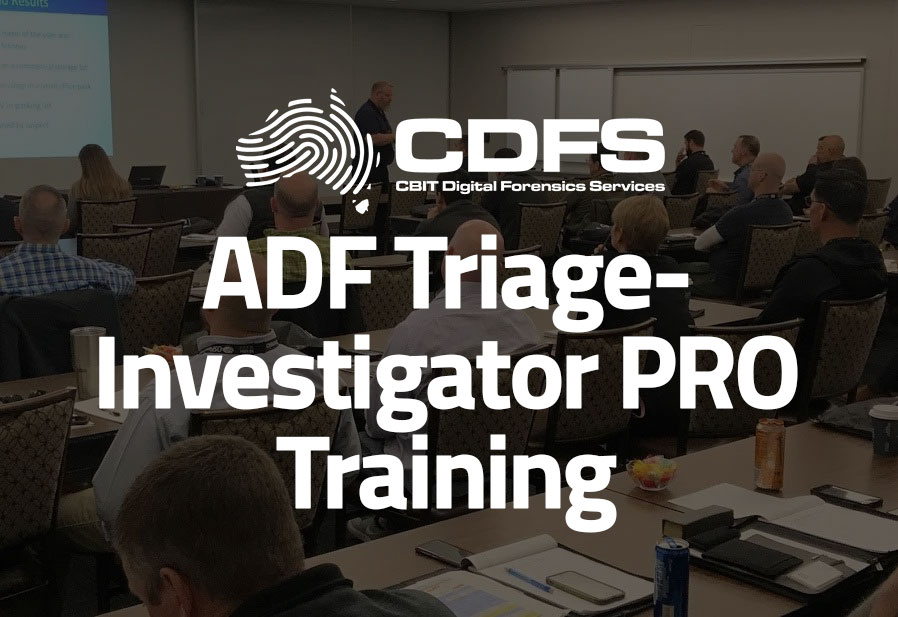
Triage-Investigator PRO Training
ADF Solutions digital forensic experts designed the Triage-Investigator PRO Certified User Training as online learning to equip non-technical investigators with the knowledge and skills they need to use Triage-Investigator to perform forensic triage to collect and extract evidence from mobile devices, computers and digital media. The class is self paced. Learners typically take approximately 8 hours to successfully complete the exercises and the final certification exam.
